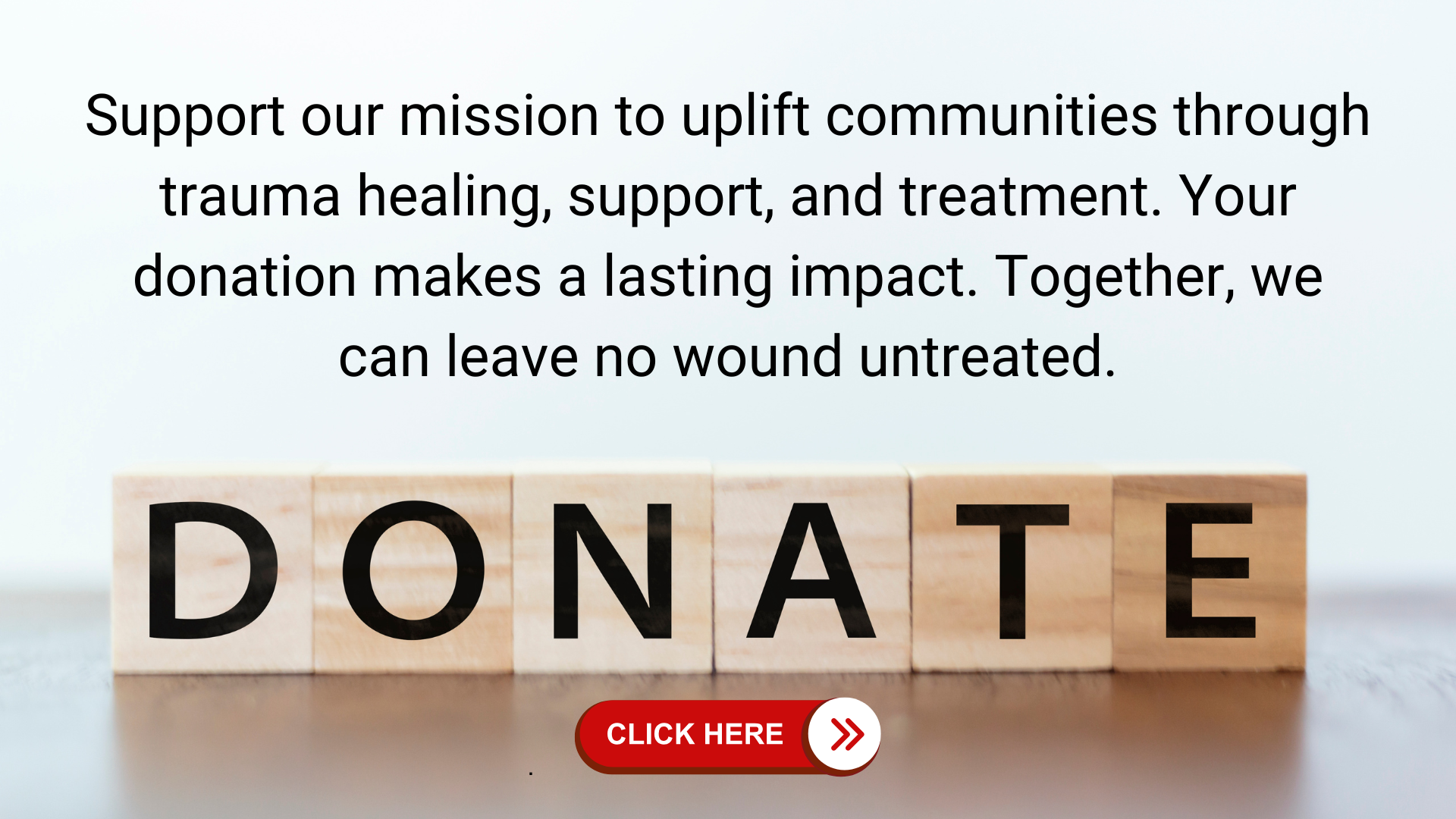Social Media Policy
NO WOUND UNTREATED (“Company,” “we,” or “us”) respects your use of social media. This page outlines our office policies related to the use of Social Media. Please read it to understand how we conduct ourselves on the Internet as mental health professionals and how you can expect us to respond to various interactions that may occur between us on the Internet.
If you have any questions about anything within this document, we encourage you to bring them up when we meet. As new technology develops and the Internet changes, there may be times when we need to update this policy. If we do so, we will notify you in writing of any policy changes and make sure you have a copy of the updated policy.
Friending/Following/Adding as a Contact
We maintain an online presence on several social media sites. We use our full names or various username derivatives of our full names on these sites so that it is clear it is us representing our business and ourselves. We do not want you to see a pseudonym and think you are following someone else only to find out later that it is us.
We don’t accept friend or contact requests either from current or former clients on any social networking site. We believe adding clients as friends or contacts on these sites can compromise your confidentiality and our respective privacy. It may also blur the boundaries of our therapeutic relationship and make it feel like a friendship, a type of patronage, or simply encourage voyeurism. If you have questions about this, please bring them up when we meet and we can talk more about it.
In some rare circumstances, we have had people in our wider circle who previously followed us on social media ask to come in for psychotherapy. If we agree that meeting together does not constitute a problematic conflict of interest, we will suggest that we unfollow one another on social media (or we will at the very least unfollow you during treatment) to avoid some of the problems outlined above. We will do this to preserve the integrity of our working relationship.
We will not ever knowingly follow you on social media, although it’s possible that if you use a pseudonym, we may accidentally follow you. If this happens, you are welcome to let us know when we meet. Our reasons for not following current or former clients on social media are described above.
In addition, viewing your online activities without your explicit consent and without a specific clinical purpose could have potential negative effects on your treatment. We might learn things about you that you have chosen not to discuss in therapy. It is your right to choose what to share in our work. But if we see these things outside of our sessions, then we will have to figure out how to tell you we have become aware of these things. If there are things from your online life that you do want to share with us, we encourage you to bring them into our sessions where we can view and explore them together, during the therapy hour. The best way to do this is to print things out and bring them to your session or show them to us on your devices. Please don’t forward us emails or screen shots that involve other people as anything you send us does become part of your legal record.
Interacting
Please do not use SMS (mobile phone text messaging) or messaging on Social Networking sites such as Twitter, Snapchat, Tik Tok, Messenger, Facebook, Slack, Instagram, or LinkedIn to contact us. These sites are not secure and we may not read these messages in a timely fashion. Do not use Wall postings, @replies, or other means of engaging with us in public online if we have an already established client/therapist relationship. Engaging with us this way could compromise your confidentiality. It may also create the possibility that these exchanges become a part of your legal medical record and will need to be documented and archived in your chart.
If you need to contact us between sessions, the best way to do so is by phone, the contact form on this website, or email at nwuinc@gmail.com. We prefer that we only use email for administrative issues such as changing appointment times. See the email section below for more information regarding email interactions.
We also may, in the future, have a blog/podcast/video series in which we allow moderated comments. Please don’t comment on the blog/podcast/video series as it creates another public forum in which we may be interacting. We would much prefer that if you read or hear something on our blog/podcast/video series and you have a reaction to it, that we talk about it together rather than having a public exchange in our comments.
Use of Search Engines
It is NOT a regular part of our practice to search for clients on social media or using search engines. Extremely rare exceptions may be made during times of crisis. If we have a reason to suspect that you are in danger and you have not been in touch with us via our usual means (coming to appointments, phone, or email) there might be instances in which using a search engine to check on your recent status updates becomes necessary as part of ensuring your welfare. These are unusual situations and if we ever resort to such means, we will document it in your chart and we will discuss it with you when we next meet.
Again, the reason we don’t do this is because we see it as a potential breach of your privacy and the trust between us. We believe that viewing your online activities and postings can alter our impressions of you and change the relationship we are mutually developing in our meetings, as described in the section on Friending/Following. It can also create confusion in regard to whether we’re looking at your online activity as part of your treatment (for assessment or diagnostic purposes) or to satisfy our personal curiosity.
If you do have online activity that you want us to know about, please talk to us about it during our work together, when we are meeting.
Discovering/Viewing Our Online Activity
We may publish a blog/podcast/video series on our website. We also have a Twitter account, a Facebook account, a LinkedIn account, and an Instagram account. We are also members of various online communities. We have no expectation that clients will want to follow our writings or social media postings. However, if you use an easily recognizable name online and we happen to notice that you’ve followed us, we may briefly discuss it and its potential impact on our working relationship.
You may also run across our information in other settings. You may see online ads that we post, you may discover that we have friends or contacts in common on social media. You may see us quoted or published in the media or see our published writings or research. You may discover our podcasts or videos. Or you may find that we have online reviews of our organization.
Whether you find this information accidentally or intentionally, what is most important to us is that you feel safe and comfortable bringing it up if it has an impact on you and your feelings about our work together. We want to make it clear that is very normal for people to be curious about their therapist and some people feel shame or embarrassment about bringing these things up. But we hope to create a relationship in which you are warmly welcomed to bring up anything you learn about us outside of our sessions and programming that has an effect on your comfort in working together.
If you need to contact us, you may send us emails at nwuinc@gmail.com. We use email primarily for administrative issues such as scheduling, appointment changes, and inquiries related to our work together. Please note, email is not a secure or confidential medium, so we ask that you limit personal or sensitive information to what is necessary for scheduling or logistical matters.
If you send an email to discuss issues that you would prefer not to be in your medical record, we encourage you to save these topics for in-person discussion or use alternative, secure methods of communication where applicable. We will respond to emails during business hours, but please understand that we may not be able to respond immediately, especially if we are with clients or unavailable.
Emergency Situations
If you are experiencing an emergency or need immediate assistance, please call 911 or go to your nearest emergency room. Email and social media are not appropriate or reliable for urgent matters.
Conclusion
Thank you for taking the time to review our Social Media Policy. If you have questions or concerns about any of these policies and procedures or regarding our potential interactions on the Internet, do bring them to our attention so that we can discuss them.
Contact Us
The Company welcomes your questions or comments regarding the Social Media Policy:
No Wound Untreated, Inc
852 Kensington Avenue
Buffalo, New York 14215
Email Address: nwuinc@gmail.com
Effective as of [03/03/2025]

